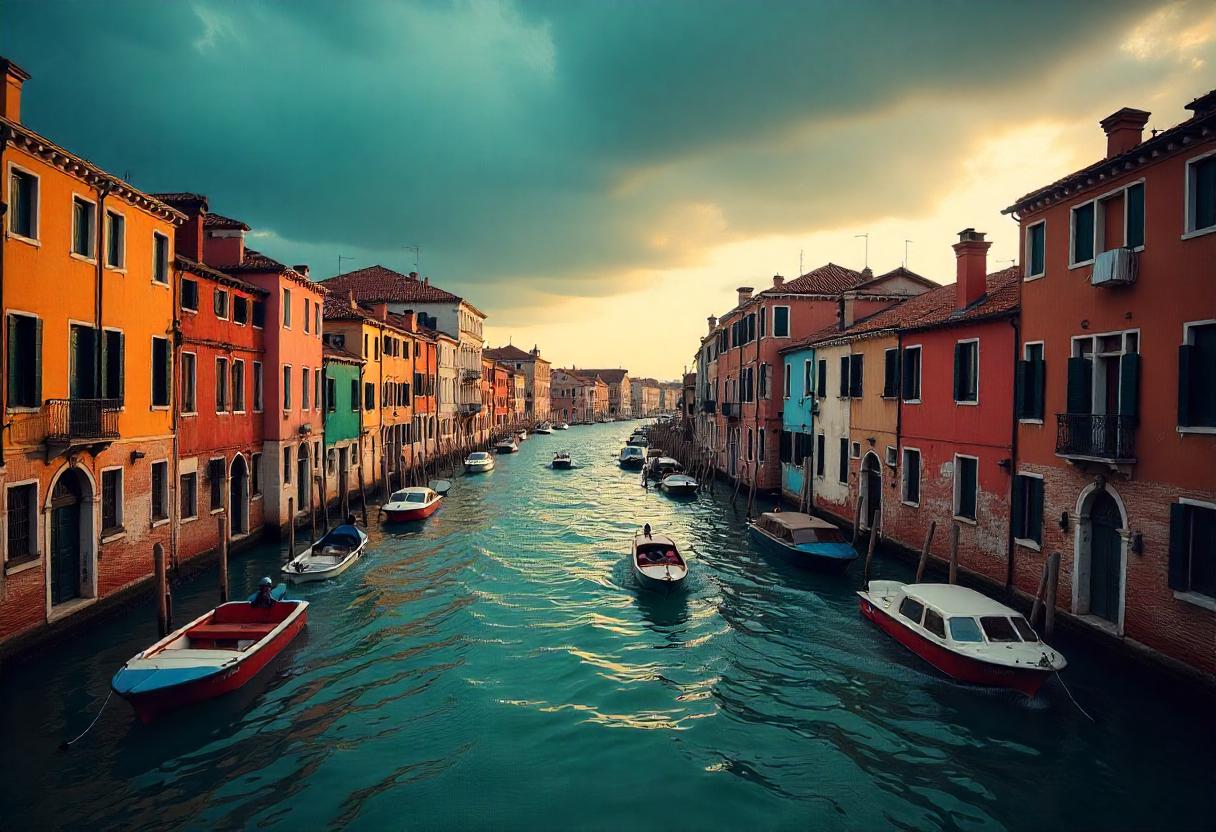≡-Italy, France, Austria, Malta, Greece, Croatia, Czech Republic, Netherlands, Switzerland, Portugal, And Spain Unite In 2025 With Urgent Policies And Protests To Combat The Growing Crisis Of Overtourism Across Europe’s Most Visited Destinations – Viral of Today
<> Viral of Today <>
Home » Destination News » Italy, France, Austria, Malta, Greece, Croatia, Czech Republic, Netherlands, Switzerland, Portugal, And Spain Unite In 2025 With Urgent Policies And Protests To Combat The Growing Crisis Of Overtourism Across Europe’s Most Visited Destinations Monday, July 7, 2025In 2025, overtourism has reached a tipping point across Europe, forcing countries like Italy, France, Austria, Malta, Greece, Croatia, Czech Republic, Netherlands, Switzerland, Portugal, and Spain to take unprecedented action. From mass protests and stricter housing laws to bans on short-term rentals and access limits to heritage sites, these nations are uniting in a bold response to reclaim their cities, protect their local communities, and preserve cultural identity. With visitor numbers outpacing resident populations in some destinations, governments and citizens alike are demanding a fundamental shift toward sustainable, responsible travel before the damage becomes irreversible.Spain Faces Tourism Reckoning as Nearly 94 Million Visitors Arrive in 2024, Fueling Nationwide BacklashSpain, one of the world’s most visited countries, experienced an extraordinary surge in tourism in 2024, drawing close to 94 million international visitors—a figure that nearly doubles the country’s population of approximately 48 million. While this boom reflects Spain’s enduring global appeal, it has also triggered an intense national debate and widespread public protests over the mounting consequences of overtourism.From the sun-drenched beaches of the Balearic Islands to the historic streets of Barcelona, locals have grown increasingly vocal about the pressures of mass tourism on housing, infrastructure, and quality of life. In early summer, Majorca became the focal point of this growing resistance. In the island’s capital, Palma, nearly 5,000 residents gathered in the streets to demand limits on tourist numbers and stricter controls over short-term vacation rentals. Placards and chants carried a clear message: communities are being overwhelmed, and action is urgently needed.The scene has been repeated across other tourism hotspots. In Barcelona, one of Spain’s most popular and densely visited cities, residents staged a bold and highly symbolic protest near the Sagrada Familia basilica. Locals squirted water pistols at crowds of tourists to highlight the suffocating impact that short-term visitors are having on their neighborhoods. With roughly 15.5 million tourists pouring into the city annually, the pressure on Barcelona’s 1.7 million residents is extreme—visitors outnumber locals nearly nine to one.The growing resentment is rooted in real and measurable changes to daily life. Long-term residents in central districts have seen rents skyrocket and local shops disappear, replaced by souvenir stalls, global chains, and tourist-focused services. The cultural fabric of neighborhoods is shifting, with once vibrant communities turning into transient zones catering to the needs of short-stay guests.Housing is at the heart of the issue. In an aggressive move to curb the trend, Spanish authorities launched a nationwide crackdown on illegal short-term holiday rentals. Airbnb was ordered to remove nearly 66,000 listings found to be operating without proper registration or in violation of local housing regulations. These actions mark one of the most sweeping enforcements yet against the short-let economy that many argue has distorted urban housing markets.Barcelona, in particular, has taken a bold step further. City leaders recently revealed a comprehensive plan to phase out all 10,000 of its officially licensed short-term rental apartments by 2028. The strategy aims to gradually return housing stock to permanent residents, ease rental prices, and reduce the city’s dependence on tourism as a primary economic driver. The initiative is part of a wider push to rebalance the relationship between visitors and locals, ensuring that tourism does not come at the cost of livability.Across Spain, similar debates are unfolding in other highly visited regions, including the Canary Islands, Valencia, and Andalusia. But Spain is not alone in its struggle with the effects of excessive tourism.In Italy, Venice recently introduced an entry fee for day-trippers to manage crowd levels, while Florence banned new short-term rentals in its historic center. France has enforced stricter tourist taxes in Paris and the French Riviera. In the Czech Republic, Prague is trying to shift its tourism image away from party tourism and focus more on cultural heritage. Croatia, now a full member of the Schengen zone and eurozone, has seen booming visitor numbers to cities like Dubrovnik, putting similar pressure on local infrastructure.Austria’s Vienna has placed limits on large tour groups in historic areas, and the Netherlands has launched campaigns urging respectful travel behavior in Amsterdam. Switzerland, though more expensive, has begun discussing strategies to prevent its alpine villages from turning into seasonal ghost towns. In Portugal, Lisbon has frozen new short-term rental licenses in certain neighborhoods, and in Greece, restrictions on visitor numbers at landmarks like the Acropolis have already been implemented. Even tiny Malta, which depends heavily on tourism, is beginning to evaluate how to manage tourist inflow while protecting cultural and ecological integrity.While tourism remains a major source of employment and revenue—accounting for more than 12% of Spain’s GDP—the public mood is shifting. Residents and local officials alike are calling for more sustainable models of tourism that prioritize the needs of communities and preserve the country’s cultural and environmental heritage.The central government has acknowledged the urgency of the issue. Measures are being discussed to enhance local authority over tourism management, impose stricter fines on illegal rentals, and develop better data systems to track visitor numbers and their impact. Regions may soon gain more power to limit cruise ship arrivals, set caps on hotel development, and regulate the number of visitors in environmentally sensitive areas such as national parks or UNESCO heritage sites.In 2025, Italy, France, Austria, Malta, Greece, Croatia, Czech Republic, Netherlands, Switzerland, Portugal, and Spain are taking bold, united action to fight overtourism, protect local life, and reclaim control over their cities and culture.For now, the images of water pistols at the Sagrada Familia and mass marches in Majorca serve as a wake-up call—not just for Spain, but for other top travel destinations across Europe. As global travel continues to rebound after the pandemic, the conversation around responsible tourism is becoming more urgent. Spain’s response in the coming years may set the standard for how beloved tourist destinations adapt to a more sustainable and respectful future.«Enjoyed this post? Never miss out on future posts by following us»Tags: Europe travel 2025, european destinations, Italy travel protests, local housing crisis, mass tourism crisis, overtourism, Spain tourism reform, sustainable tourism, Tourism news, travel industry, Travel News, Travel Sustainability
This information will surprise you!
See also
- Read until the end to discover everything.
- Important information you need to know.
- Interesting facts and helpful tips.
Conclusion
Did you enjoy the news? Keep following us daily!













